FAQs
Home > FAQs
FAQs
Home > FAQs
When speaking with partners and clients we tend to find many questions come up multiple times. We've listed a few below.
What exactly is an 'AI Sales Agent' (aka 'Sales Bot')?
An AI sales agent is a tool powered by artificial intelligence designed to automate parts of the sales process. It can engage with potential customers, handle inquiries, qualify leads, and even close sales in some cases. These agents use data, natural language processing, and machine learning to simulate human-like interactions.
Can/Will AI sales agents replace my human sales team?
AI sales agents aren’t here to replace your human sales team but to enhance their productivity. They can handle routine tasks like responding to initial inquiries, qualifying leads, and following up on prospects, allowing your human sales team to focus on more complex, high-value tasks such as closing deals and building relationships.
How will AI sales agents impact the customer experience?
If implemented correctly, AI sales agents can actually improve the customer experience by providing faster responses and 24/7 availability. They can handle multiple conversations at once, ensuring no potential customer is left waiting. Additionally, AI can personalise interactions based on customer data, improving engagement and satisfaction.
Is an AI sales agent expensive to implement?
AI solutions can range in price depending on the complexity. For SMEs, starting with an "out of the box" AI sales agent is often cost-effective and easier to implement. These solutions can be scaled up as your business grows, providing more sophisticated AI capabilities over time.
How long does it take to implement an AI sales agent?
Implementation timelines can vary depending on the complexity of the AI solution and your business’s requirements. However, many "out of the box" AI solutions can be set up in a matter of days or weeks. More complex, customised solutions may take longer to configure and train.
Can AI sales agents be integrated with my existing systems (CRM, marketing tools, etc.)?
Yes, most AI sales agents can be integrated with existing systems like CRM platforms, email marketing tools, and other sales-related software. Integration ensures that the AI can access important customer data and provide a seamless experience across platforms.
What kind of tasks can an AI sales agent handle?
AI sales agents can manage a variety of tasks, such as:
Engaging with website visitors through chatbots
Answering frequently asked questions
Qualifying leads based on predefined criteria
Scheduling meetings for human sales representatives
Following up with leads
Analysing customer data to personalize sales approaches
How do I measure the success of an AI sales agent?
Success can be measured by tracking metrics like lead qualification rates, conversion rates, customer engagement, response times, and overall sales performance.
Will my customers know they are interacting with AI?
This depends on how you want to implement the AI. Some businesses prefer to disclose that the customer is interacting with an AI agent, while others allow the AI to simulate human interactions seamlessly. Being transparent with customers is often a best practice, but it’s up to your brand’s approach.
What’s the ROI of using AI sales agents for SMEs?
For SMEs, the ROI can be significant in terms of time savings, lead generation, and improved customer engagement. By automating routine tasks, AI sales agents allow your human team to focus on closing deals and building relationships, ultimately leading to faster growth and higher revenue.
I feel overwhelmed by AI. Where do I even start?
It’s normal to feel overwhelmed, but the most important thing is to start. If you don’t, you’ll risk being left behind as the world moves forward with AI adoption. Focus on small, manageable tasks first, and gradually expand your use of AI as you become more familiar with it.
How can I ensure the AI behaves as expected?
You can ensure your AI system behaves properly by implementing guardrails. Regular auditing and reviewing the AI's performance is essential, and you can place restrictions on its output to keep it aligned with your goals. Providing it with a strong knowledge base ensures that the AI makes informed, accurate decisions based on your company’s unique needs.
When speaking with partners and clients we tend to find many questions come up multiple times. We've listed a few below.
What exactly is an 'AI Sales Agent' (aka 'Sales Bot')?
An AI sales agent is a tool powered by artificial intelligence designed to automate parts of the sales process. It can engage with potential customers, handle inquiries, qualify leads, and even close sales in some cases. These agents use data, natural language processing, and machine learning to simulate human-like interactions.
Can/Will AI sales agents replace my human sales team?
AI sales agents aren’t here to replace your human sales team but to enhance their productivity. They can handle routine tasks like responding to initial inquiries, qualifying leads, and following up on prospects, allowing your human sales team to focus on more complex, high-value tasks such as closing deals and building relationships.
How will AI sales agents impact the customer experience?
If implemented correctly, AI sales agents can actually improve the customer experience by providing faster responses and 24/7 availability. They can handle multiple conversations at once, ensuring no potential customer is left waiting. Additionally, AI can personalise interactions based on customer data, improving engagement and satisfaction.
Is an AI sales agent expensive to implement?
AI solutions can range in price depending on the complexity. For SMEs, starting with an "out of the box" AI sales agent is often cost-effective and easier to implement. These solutions can be scaled up as your business grows, providing more sophisticated AI capabilities over time.
How long does it take to implement an AI sales agent?
Implementation timelines can vary depending on the complexity of the AI solution and your business’s requirements. However, many "out of the box" AI solutions can be set up in a matter of days or weeks. More complex, customised solutions may take longer to configure and train.
Can AI sales agents be integrated with my existing systems (CRM, marketing tools, etc.)?
Yes, most AI sales agents can be integrated with existing systems like CRM platforms, email marketing tools, and other sales-related software. Integration ensures that the AI can access important customer data and provide a seamless experience across platforms.
What kind of tasks can an AI sales agent handle?
AI sales agents can manage a variety of tasks, such as:
Engaging with website visitors through chatbots
Answering frequently asked questions
Qualifying leads based on predefined criteria
Scheduling meetings for human sales representatives
Following up with leads
Analysing customer data to personalize sales approaches
How do I measure the success of an AI sales agent?
Success can be measured by tracking metrics like lead qualification rates, conversion rates, customer engagement, response times, and overall sales performance.
Will my customers know they are interacting with AI?
This depends on how you want to implement the AI. Some businesses prefer to disclose that the customer is interacting with an AI agent, while others allow the AI to simulate human interactions seamlessly. Being transparent with customers is often a best practice, but it’s up to your brand’s approach.
What’s the ROI of using AI sales agents for SMEs?
For SMEs, the ROI can be significant in terms of time savings, lead generation, and improved customer engagement. By automating routine tasks, AI sales agents allow your human team to focus on closing deals and building relationships, ultimately leading to faster growth and higher revenue.
I feel overwhelmed by AI. Where do I even start?
It’s normal to feel overwhelmed, but the most important thing is to start. If you don’t, you’ll risk being left behind as the world moves forward with AI adoption. Focus on small, manageable tasks first, and gradually expand your use of AI as you become more familiar with it.
How can I ensure the AI behaves as expected?
You can ensure your AI system behaves properly by implementing guardrails. Regular auditing and reviewing the AI's performance is essential, and you can place restrictions on its output to keep it aligned with your goals. Providing it with a strong knowledge base ensures that the AI makes informed, accurate decisions based on your company’s unique needs.

Our mission is to help businesses drive long-term revenue growth through AI-powered sales automation, boosting conversions without the need for more leads or sales reps by integrating seamlessly into existing sales and marketing channels.
